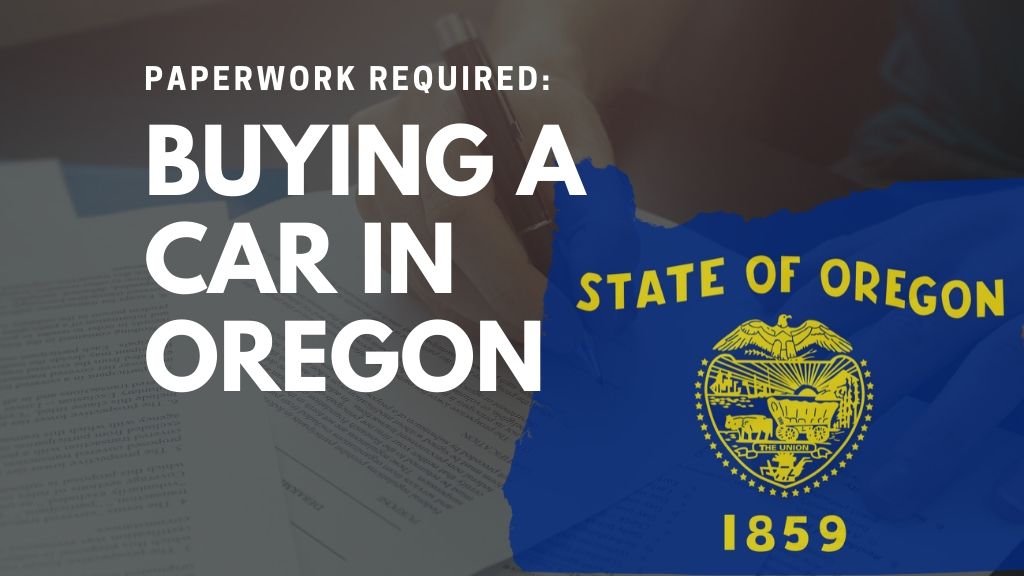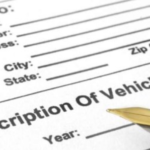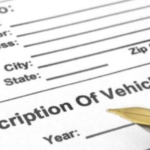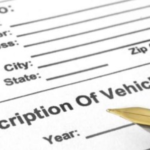Last Updated on June 29, 2020 by Jason Mason
The Oregon Driver and Motor Vehicle Services Division (DMV) have provided guidelines that make the process of selling and buying vehicles simpler and easier.
When buying a car in Oregon, you must obtain certain documents from the seller in order to register and apply for a title in your name. The documents that you need include the bill of sale and vehicle title. You will use these documents to register and title the car you have purchased with the Oregon Driver and Motor Vehicle Services Division (DMV). In this guide, we go in depth what are the general requirement for registering your newly purchased car in Oregon.
What paperwork do i need for my newly purchased car in Oregon?
You will need the same documents when registering and titling the car in your name. Make sure you obtain the following documents from the seller:
- A signed copy of vehicle title.
- Bill of sale (Form 735-501).
- Odometer disclosure statement.
- Lien release if the vehicle was financed by the seller.
When you are transferring the title from a private seller, you need to make sure do the following:
- Fill out Form 515 (Application for Replacement Title). Make sure the current owner and previous owners have signed this form.
- Complete Form 226 (Application for Title and Registration) and ensure it has information about the new owner.
- If applicable, provide release of interest from the previous owner(s).
- Provide the Statement of Lien Satisfaction (Form 524) or the bill of sale.
You must take your newly purchased vehicle to the Oregon Department of Environmental Quality (DEQ) for emission tests. Emissions tests are required if you live in Rogue Valley or Portland and you have a car with expired registration papers. These tests are also required if the vehicle you are purchasing is not registered in Oregon.
What if i do not have the title for the purchased car?
The Oregon DMV warns against buying a vehicle without a title certificate. If the seller doesn’t have a title for the vehicle they are selling, ask him to apply for a duplicate copy for you. If the vehicle you have purchased is not subject to odometer disclosure requirements, you might be able to receive a new title.
Oregon Auto Insurance Requirements
In Oregon, you cannot register your car without required car insurance. You are legally required to hold several types of car insurance coverages which include personal injury protection, liability and uninsured motorist coverage.
Oregon car insurance laws require you to hold the following types of insurance coverages:
- Bodily injury liability
- Property damage liability
- Personal injury protection
- Uninsured motorist.
Liability Insurance
Liability insurance is required to cover the cost of property damage and injuries to others resulting from an accident you cause. The minimum required limits for liability insurance include:
- $25,000 for death or bodily injury per person
- $50,000 total for death or bodily injury per person
- $20,000 for property damage.
Personal Injury Protection
Your policy must include personal injury protection (PIP) coverage. This insurance cover will help pay for your own medical bills for up to 1 year after an accident. The minimum requirement for PIP is $15,000 per person.
Uninsured Motorist Coverage
Your insurance policy must include Uninsured Motorist coverage. This policy pays for injuries that result from an accident with a driver with inadequate insurance cover, or a driver without insurance. The following are minimum limits for Uninsured Motorist Coverage:
- $25,000 per person
- $50,000 per crash.
What happens if I gotten a lemon car/bad car from a dealer/private seller?
Oregon’s Lemon Law was enacted to protect buyers who had bought new automobiles with defects. Under this law, if you purchase a vehicle with chronic mechanical problem(s), you can demand a new vehicle or a refund from the manufacturer or dealer from whom you bought that vehicle from. The Department of Justice (DOJ) in Oregon is the one that administers this law. Generally, an authorized dealer or manufacturer will be allowed a reasonable number of attempts to fix the defects before your car is officially declared a lemon.
For you to invoke Oregon’s lemon law, to deal with unscrupulous manufacturers, you must meet the following:
- You must have purchased a vehicle for family, household or personal use as the low does not cover vehicles for business or commercial use
- You must notify (in writing) the Vehicle dealer or manufacturer of the problem within 2 years of purchase or 24,000 miles or whichever comes first.
- The vehicle in question must qualify as a lemon. This means it must have serious defects that impair its safety, use or market value and the manufacturer must have been unsuccessful in fixing the defect or the vehicle must have been out of service for 30 business days.
If you decided that – you are indeed covered under Oregon’s lemon law, you can:
Initiate a third-party arbitration process
Before rushing to take a legal action, you and the manufacturer must first go through the third party arbitration process to resolve your differences. If a third party arbitration process rules in your favor, you will be entitled to a full refund or a vehicle replacement.
A full refund means the value of purchase price and other applicable fees and costs.
File a Oregon Lemon Lawsuit
If a solution cannot be reached during a third party arbitration process, you may hire a lemon law attorney to help you sue the manufacturer in a civil court. If a manufacturer decides to repurchase the vehicle from you and happen to repair it, the repaired vehicle must be registered under a different title usually known as ‘Lemon Law Buyback.’
Prospective customers of this vehicle must be notified that the vehicle is a lemon. You can access more information regarding Oregon Lemon Law online through Oregon Department of Justice website.




